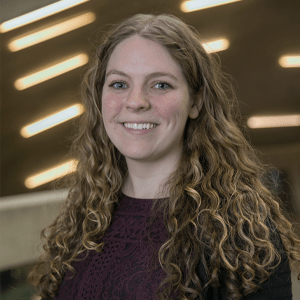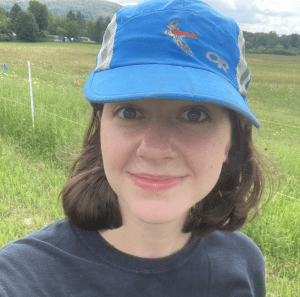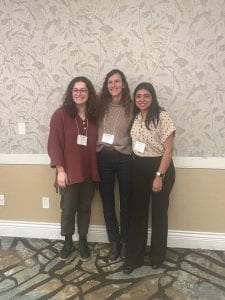The SIPS DEI Council is open to anyone in the SIPS community who would like to participate in building a diverse, equitable, and inclusive community in our school through monthly online meetings and working groups on various topics. New voices, viewpoints and energy are always welcome. Our next meeting is April 12, 10 to 11 a.m. For more information and Zoom link, email: sips-dicouncil@cornell.edu. Visit the SIPS Diversity, inclusion, & accessibility webpage.
Reporting Incidents of Bias at Cornell
What follows is from the Cornell AgriTech DEI Bulletin. Many thanks to our colleagues Anna Katharine Mansfield and Amara Dunn-Silver, Cornell AgriTech DEI Council co-chairs, who are taking such a strong lead with their DEI efforts. They write, like any group, DEI practitioners use jargon as a shortcut to convey specific meanings that may be unclear or confusing to anyone unfamiliar with the terms. As part of our DEI Bulletin series, we are exploring some key terms, concepts and practices that are important to DEI. If there’s a topic you’d like us to explore, contact Anna Katharine or Amara, or you can submit a suggestion anonymously.
In our December bulletin we wrote about implicit biases – the subconscious views we hold about other people based on the way they look, speak, act, think, believe, etc. Incidents of bias can happen when a person’s biases – subconscious or conscious – motivate hurtful words or actions. It could be a “joke” that belittles a person because of their race or country of origin. It could be assumptions about a person’s seniority or expertise based on their gender. A full definition of “bias activity”, it can be found on page 8 of Cornell’s University Policy 6.4 – Prohibited Bias, Discrimination, Harassment, and Sexual and Related Misconduct.
Experiencing a bias incident is hurtful both to the person targeted by the bias and bystanders who witness the event. Bias incidents harm everyone involved, although the impact differs depending on the identities and power you hold. If you’re the target, and especially if you hold a visible identity that seems to attract commentary, experiencing repeated bias incidents can make the world feel like an unwelcoming, unsafe, and hostile place. If you have witnessed a bias incident, you might keep thinking about it long after the event; you may even have imagined things you wish you’d said in the moment, and feel regret or impotence for not speaking up. Victims and bystanders alike experience dehumanization and distress.
One option you always have as a Cornell employee, student, or visitor when you witness or experience bias at work is to report it.
The Office of Institutional Equity and Title IX (OIETIX) tracks bias incidents experienced by Cornell employees or students, and can provide you with support if you want or need it.
Some things to know about Bias Reporting at Cornell:
- Reporting is confidential.
- Reporting can be anonymous. However, OIETIX will not be able to follow up and offer support if you report anonymously.
- You don’t need to be sure it was bias to report it. You can still report an incident even if you aren’t sure it was “serious enough” to be considered bias. OIETIX can make that determination. If it bothered you, it’s worth reporting.
- Bias perpetrated by someone not associated with Cornell can be reported. The person who committed the bias does not need to be a Cornell employee or student for you to report the incident. OIETIX still wants to know what happened and wants to be able to support you.
- Bias that happens off-campus can be reported. Many of us are involved in Extension activities or other responsibilities that take us off campus. If you experience bias on a farm or at an off-campus event you attend in connection with your work or studies at Cornell, OIETIX still wants to know about it.
Responding to bias:
If you see bias taking place, you are encouraged to intervene if you feel safe doing so. This intervention can take many forms, but the goal is to interrupt bias while preserving the dignity and humanity of everyone involved – including those committing the bias and those experiencing it.
The basics of bystander intervention training are available free at Right to Be, a non-profit started in 2005 to equip witnesses to interrupt street harassment. Proficiency takes practice, though, so the Cornell AgriTech DEI Council and Cornell Cooperative Extension recently offered a workshop on Responding to Bias in Agricultural Extension Work. Led by Kathy Castania (Opening Doors Institute) and Eduardo González Jr. (Assistant Director for Diversity, Equity, and Inclusion at Cornell Cooperative Extension), this event allowed attendees from Cornell AgriTech and regional or statewide CCE teams to brainstorm responses to real-life situations, and practice them with expert coaching. If you couldn’t attend but wish you could have, be sure to let Anna Katharine or Amara know so that we can gauge interest in offering this workshop again.
If you think it would be helpful to offer this workshop on the Ithaca campus, email the SIPS DEI council: sips-dicouncil@cornell.edu.
At AgriTech we grow things, including the courage to disrupt harassment and other bias incidents.

 -Magdalen Lindeberg
-Magdalen Lindeberg



